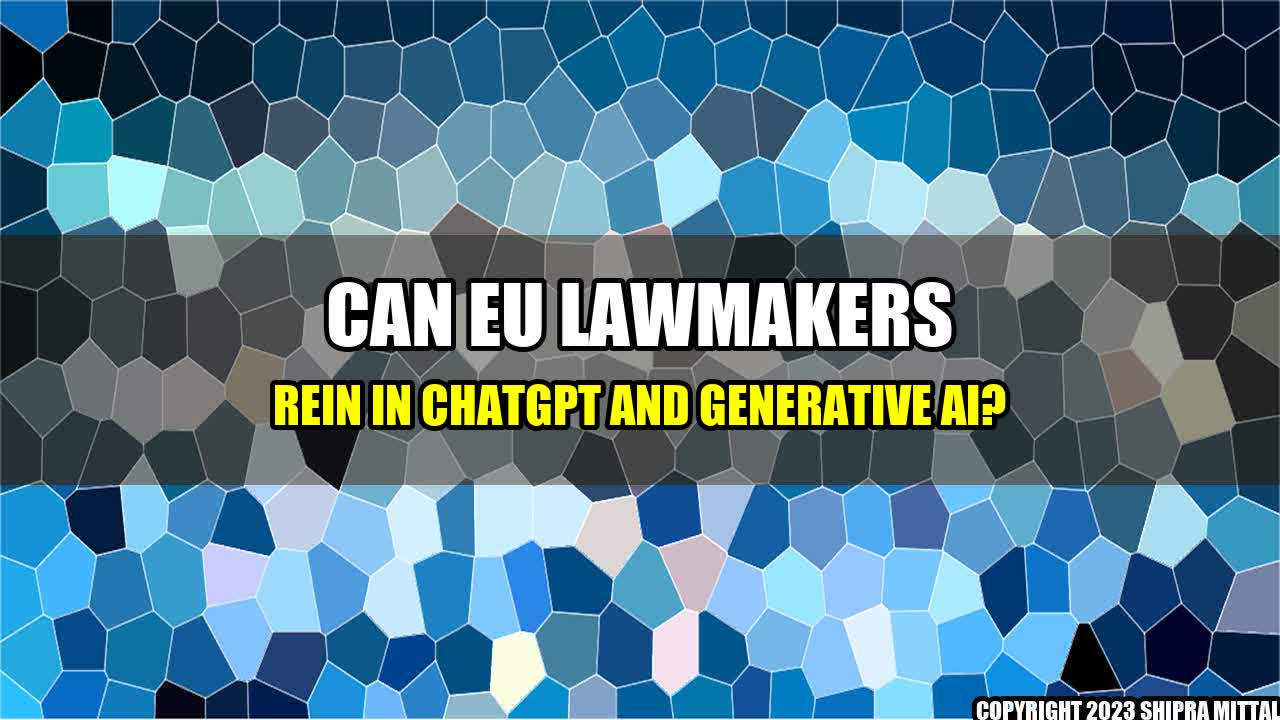
Imagine yourself having a conversation with a chatbot, thinking you are talking to a human. The responses you receive are so realistic and natural, it is hard to distinguish between human and machine. This is the power of generative AI, which has revolutionized the way we communicate.
However, with great power comes great responsibility. The EU lawmakers have been challenging the regulation of generative AI, especially the notorious ChatGPT. It is an artificial intelligence model developed by OpenAI, which can generate human-like responses based on given prompts. While this has led to many exciting applications, including chatbots, customer service, and social media influencers, it has also raised ethical concerns.
The real-life examples of ChatGPT's misuse are ample. One prominent case was the creation of GPT-2-generated fake news articles that were so convincing that they would have fooled most readers. The other example is the circulation of fake Twitter accounts, generated through the platform's API by the bot makers. The bots answer with incendiary messages that efficiently gauge the audience of the original tweet.
The European Union has been spearheading efforts to regulate AI, specifically the problematic ones like chatbots. However, the challenge lies in categorizing which AI models to regulate. In a recent discussion, the EU lawmakers emphasized the need for tailored governance of chatbots, which would include restrictions on harmful uses and transparency in AI systems.
Moreover, with the increasing use of generative AI, it is also essential to educate and empower users to understand how chatbots work and to recognize fake content. AI experts predict that self-regulation, along with transparency of AI models, can ensure ethical AI development.
The responsibility for regulating AI models falls not only on governments but also on organizations that develop them. Tech giants like Google, Facebook, and Microsoft have highlighted the importance of AI regulation, and its impact on society. They have also started investing in AI ethics, including an AI Advisory Council that guides the development of new AI models.
OpenAI, the organization that developed ChatGPT, has marked restrictions on its uses, including not letting the original model be used for political purposes. The organization has also made its models publicly available, setting a precedent for transparency in AI development.
The regulation of AI is crucial as it has the potential to transform industries and societies. However, regulation must be comprehensive and not limit innovation and creativity. With tailored governance, transparency, and self-regulation, the development of ethical AI models can be ensured.
In conclusion, ChatGPT and generative AI have massive potential, but their regulation is necessary for responsible technology development. While governments and organizations like OpenAI have a responsibility to ensure ethical AI projects, users must also become aware and educated about AI and their uses.
Akash Mittal Tech Article
Share on Twitter Share on LinkedIn